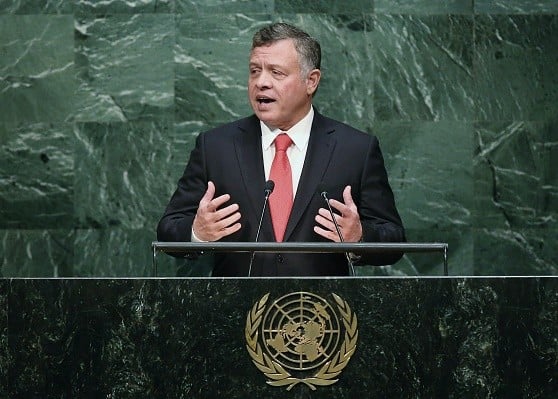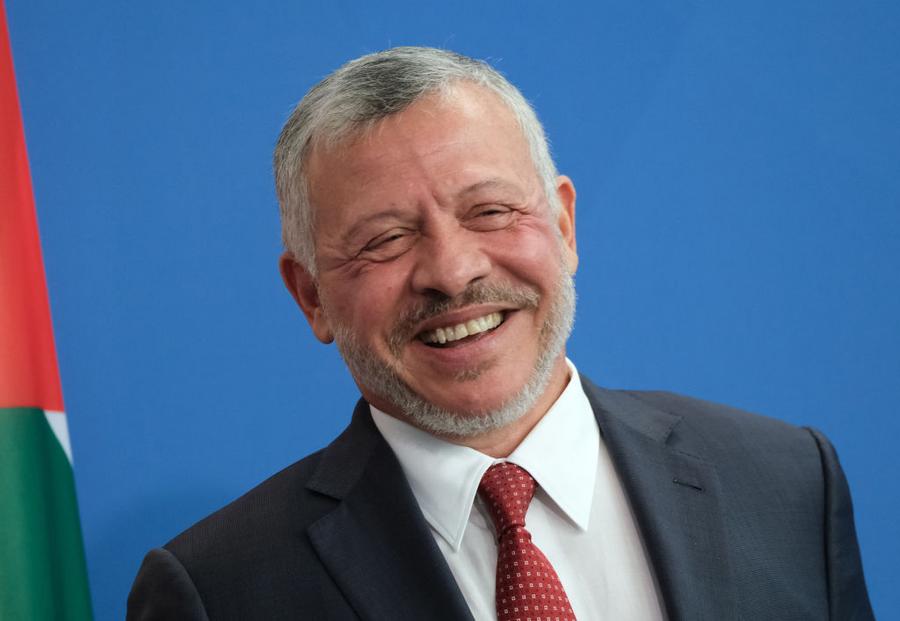Abdullah II of Jordan at a Glance
- Categories: Politicians, Politicians > Royals
- Net Worth: $750 Million
- Birthdate: Jan 30, 1962 (62 years old)
- Birthplace: Amman
- Gender: Male
- Profession: Politician
- Nationality: Jordan
King Abdullah II of Jordan: A Detailed Look at His Net Worth, Life, and Reign
What is Abdullah II of Jordan’s Net Worth?
Abdullah II of Jordan, the current King of the Hashemite Kingdom of Jordan, possesses a net worth estimated at $750 million. He assumed the throne in February 1999 after the passing of his father, King Hussein. This transition was initially unexpected, as King Hussein had previously designated his brother, Prince Hassan, as his heir. However, in the final days of his life, King Hussein altered the line of succession, paving the way for Abdullah II to become the King of Jordan. Abdullah’s reign has been marked by significant political and economic developments within the country, as well as his role on the global stage.
Early Life and Family Background
Abdullah II bin Al-Hussein was born on January 30, 1962, in Amman, Jordan. His parents are the late King Hussein and Princess Muna al-Hussein, who was born Antoinette Avril Gardiner in the United Kingdom. Abdullah’s lineage is deeply rooted in Jordanian and Islamic history. He is a member of the Hashemite dynasty, which has ruled Jordan for over a century and holds a historical position of leadership within the Muslim world. The Hashemites trace their lineage back over 700 years and are the oldest-ruling dynasty in the Muslim world, having once ruled Mecca.
Abdullah has a large family, with ten siblings, including half-siblings. These siblings include Princess Alia, Prince Faisal, Prince Ali, Princess Aisha, Princess Haya, Princess Zein, Prince Hamzah, Princess Raiyah, Prince Hashem, and Princess Iman. As the eldest son, Abdullah was initially the heir apparent under the 1952 constitution. However, due to political circumstances, his uncle, Prince Hassan, served as heir for a period before Abdullah ultimately ascended the throne.

John Moore/Getty Images
Military Career and Education
Abdullah II’s early life included a strong emphasis on education and military training. He attended the Islamic Educational College in Amman and later pursued his education in the United Kingdom and the United States. His educational journey included St. Edmund’s School in England, followed by Eaglebrook School and Deerfield Academy in the United States, reflecting a commitment to a well-rounded and international education.
In 1980, Abdullah began his military career at the Royal Military Academy Sandhurst. His military training continued within the British Army, where he attained the rank of second lieutenant. He furthered his education with a special studies course in Middle Eastern affairs at Pembroke College, Oxford, in 1982. Upon returning to Jordan, he joined the Royal Jordanian Army. His military service included roles as a first lieutenant, platoon commander, assistant commander, and eventually commander of a tank company in the 91st Armored Brigade, reflecting a solid understanding of military affairs and a commitment to his country’s defense.
He took a break from active duty to pursue further education at the Edmund A. Walsh School of Foreign Service at Georgetown University in 1987. He resumed his military service and became the assistant commander of the 17th Royal Tank Battalion. His career progressed to command of Jordan’s Special Forces, where he held the rank of brigadier general, and eventually a major general. This background instilled in him a strong belief in the importance of a robust and well-prepared military for Jordan’s security and stability.

Brendan McDermid-Pool/Getty Images
Ascension to the Throne and Reign
Following the death of his father, King Hussein, in February 1999, Abdullah II ascended to the throne of Jordan. As the new King, he inherited a nation at a critical juncture and was granted wider executive and legislative authority compared to constitutional monarchs in many other nations. Abdullah II serves as both the head of state and the commander-in-chief of the Jordanian Armed Forces, positions that give him significant power in the administration of the country.
During his reign, Abdullah II has pursued policies aimed at liberalizing the Jordanian economy and implementing reforms to promote economic growth. While he has overseen periods of significant economic progress, his government has also had to navigate the economic hardships that followed the global financial crisis of 2008. The economic challenges have presented persistent hurdles in maintaining the country’s financial stability.
A notable event during his reign was the Arab Spring, a period of widespread protests and civil unrest across the Arab world. Abdullah II garnered international praise for his swift and decisive response to domestic unrest, including governmental restructuring, constitutional reforms, and revisions to laws governing public liberties and elections. His introduction of proportional representation in the Jordanian parliament during the 2016 general election reflects his commitment to democratic processes. Despite facing criticism, Abdullah II remains popular both domestically and internationally, primarily due to his efforts in maintaining stability within Jordan and promoting interfaith dialogue. He currently holds the distinction of being the longest-serving Arab leader in the world.

(Photo by Sean Gallup/Getty Images)
Personal Life and Interests
In 1993, Abdullah II married Rania Al-Yassin, who was working in marketing at Apple in Amman at the time. Queen Rania has since become a prominent figure and advocate for various causes. The couple has four children: Prince Hussein, Princess Iman, Princess Salma, and Prince Hashem. They are often seen as a modern royal family, representing Jordan on both national and international platforms.
In his personal life, Abdullah enjoys various hobbies and pastimes. He is known for his interest in skydiving, water sports, and motorcycling. His interests extend to collecting ancient weapons and enjoying stand-up comedy. These diverse interests provide a glimpse into his personality beyond his official duties. In 2010, Abdullah released an autobiography titled “Our Last Best Chance: The Pursuit of Peace in a Time of Peril,” offering insights into his views on global issues.
Real Estate Holdings
Beyond his political and official roles, Abdullah II has a notable portfolio of real estate holdings. These properties, including those disclosed in the Pandora Papers leak of 2021, are estimated to be worth over $100 million. His real estate investments have generated interest and scrutiny, particularly concerning the ownership structures used.
The Pandora Papers revealed that Abdullah II utilized offshore companies based in the British Virgin Islands to disguise his ownership of various properties. These properties include three oceanfront estates located in Malibu, California, as well as properties in London, Ascot, and Washington, DC. While Abdullah’s attorneys deny any tax evasion or misuse of public funds, the use of offshore companies has raised questions about transparency and accountability. They claim that these offshore entities are used for privacy and security, and that he purchased the properties with personal wealth.
Previously, Abdullah owned a significant 15-acre estate in Potomac, Maryland, featuring a 30,000 square foot mansion. This property was sold in 2000 to Dan Snyder, the owner of the Washington Redskins, for $8.6 million. Snyder listed the mansion for sale in February 2023, with a price of $50 million, indicating the considerable appreciation of the property.
Honors and Awards
Throughout his lifetime and reign, Abdullah II has received numerous honors and awards recognizing his leadership, contributions, and commitment to various causes. He has been awarded honorary doctorate degrees from institutions, including the University of Jordan, Georgetown University, the University of Oxford, and Chulalongkorn University in Thailand. These academic accolades underscore his commitment to education and international relations. Other awards include the Golden Shield Award, the Franklin Delano Roosevelt International Disability Award, the Peacemaker Award, and the Templeton Prize, which was given to him for his work in promoting interfaith dialogue. These honors highlight the diverse areas in which Abdullah has been recognized for his contributions.
Conclusion
Abdullah II of Jordan has had a multifaceted life, marked by his royal lineage, military service, and dedication to leading his country. His reign has been characterized by economic reforms, responses to regional unrest, and efforts to maintain stability. His personal interests and vast real estate holdings add another layer to his profile. From his early education to his role as King and his global presence, Abdullah II continues to shape Jordan’s future while engaging with international affairs and maintaining the country’s historic position in the region. His legacy is still being written, and it is one that combines tradition with a forward-looking approach to governance and international relations.

